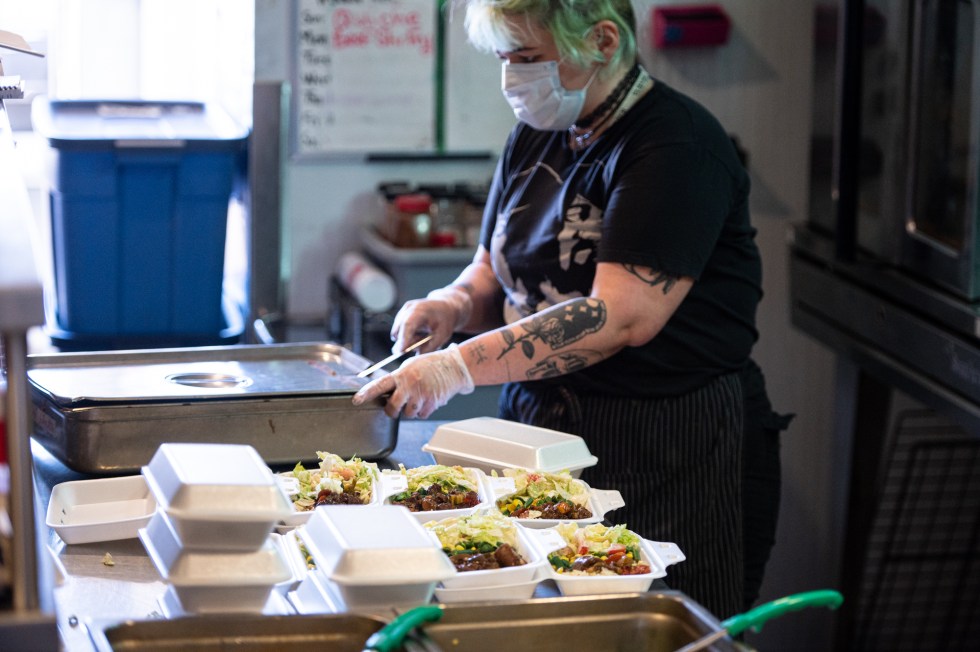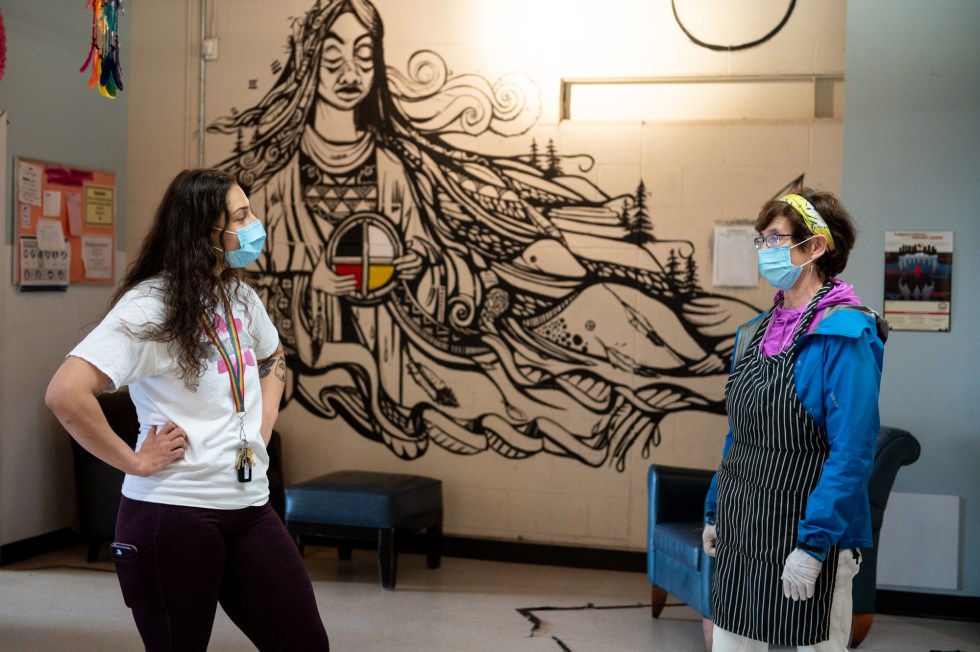Photo by WendyDPhotography.
By Andrea Loewen
@ms.andreajoy
In Vancouver, the WISH Drop-In Centre Society has long been the frontlines of support and advocacy for street-based sex workers.
For WISH, just existing means pushing back against the establishment. “There are elements of being a sex worker-positive organization and talking about sex work as work is in itself a powerful act of resistance,” says Mebrat Beyene, the Executive Director of WISH.
“I’m a feminist. If your feminism doesn’t include sex workers, if your feminism doesn’t include trans women, then you will be missing a huge angle of what’s happening for women and what women’s opportunity looks like and what women’s health and safety looks like.”
Since COVID-19 struck, however, WISH saw an almost instant shift in their work and that of the women they support.

“I would argue that sex workers were the first group of people and the first group of workers to feel the impact of the sudden and dramatic loss of income,” says Beyene. “What we are seeing when it comes to sex workers in this crisis is barrier after barrier after barrier. Whereas some other groups are able to access income replacement, this group isn’t, and that lack of choice is putting them at even more risk at every turn.”
The pile-up of barriers is about a lot more than lost income, of course.
There’s the closure of most public spaces, from coffee shops to libraries to many social service sites, which means that there are few places that a street-based sex worker can go to just be safe. Plus, places to work have reduced: most supportive housing spaces have had to institute strict guest laws to prevent the spread of COVID, so there is nowhere to go if they do find work.
Then there is the spike in physical harm in this already dangerous work.
“There is an increase in targeted violence against women and against sex workers in particular,” says Beyene. “So a lot of bad dates and johns who are definitely taking advantage of the desperation that’s out there.”
This includes everything from “bargaining” on price under the threat of violence or actual violence, as well as robbing the women who tend to be carrying cash and even stealing their personal protective equipment.
There are also more women turning to street-based sex work for the first time. Unfortunately, according to Beyene, “[these first-time sex workers] are doing so under duress, with no experience around street-based sex work, which is very dangerous. Not really knowing the community of sex workers and how to keep each other safe is really isolating and really terrifying for those who are turning to it for the first time.”
Then we have the restrictions that service organizations like WISH now need to operate within, changing everything from a reduction in drop-in services to completely cutting off their ability to take used clothing donations.
Like most frontline charities, WISH is always running to the limits of its capacity.

“We basically do as much programming as we can afford to pull off and then more programming that we can’t afford and we try to make it work as best as possible,” says Beyene.
During the current pandemic, this attitude is no different, but the tactics have had to change dramatically. From reducing the number of people allowed in the drop-in centre at any time to making all their meals to go, opening up the secured backlot of the facility, and staying “open,” even when they are supposed to be closed.
In fact, according to Beyene, the hardest part of working through COVID as a service provider is not necessarily the logistical restrictions, but the emotional cost of not being able to help everybody.
“We’re seeing a lot of new faces,” says Beyene, “Women are calling us and they are showing up in tears and in panic, and quite a lot of heightened anxiety.”
This is why WISH has started the Courage Campaign: to help them raise enough funds to keep their doors open 24 hours a day and turn away as few women as possible. They also hope that it will help raise awareness of the devastating impacts of COVID-19 on these women who are already vulnerable to financial instability and violence, as well as often being immunocompromised.
Those who want to contribute to this movement are currently not able to volunteer in person. However, there are other ways you can help, from donating cash and new, packaged supplies, to joining the resistance through advocating to government that sex workers need to be included in social and financial support packages.




